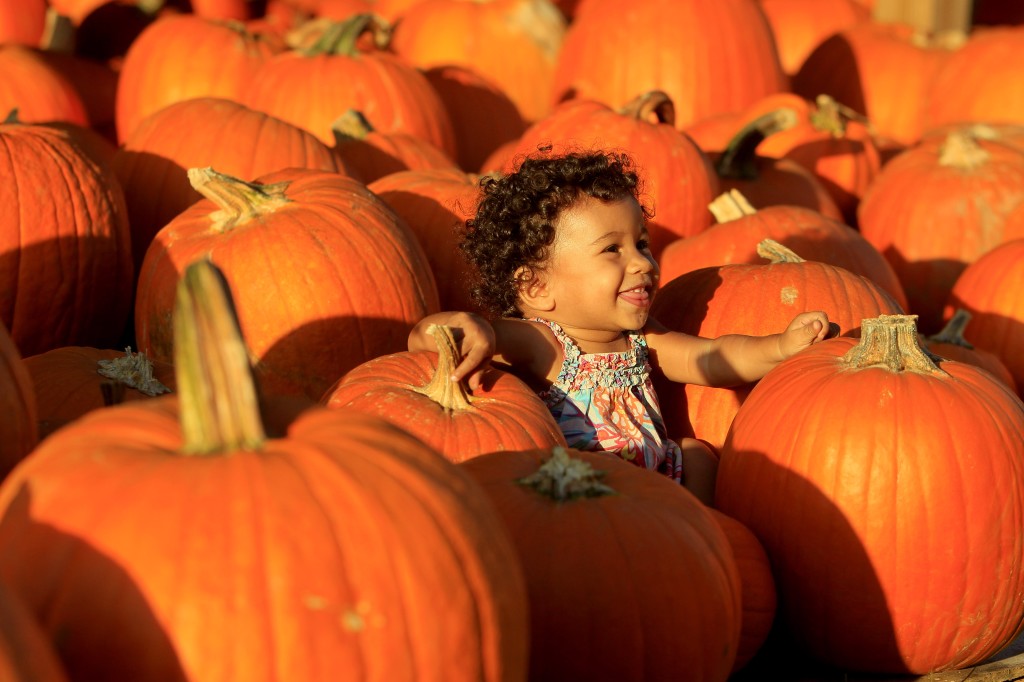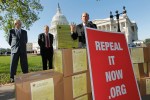It’s a good time to be a pumpkin eater.
Videos by Rare
As a lifelong devotee of pumpkin, I have been keenly aware of the plethora of pumpkin options that have been proliferating in recent years. It’s no longer just about pie.
It seems as if every local craft brewery has its own version of pumpkin beer. Most coffee shops seem to have a pumpkin latte on the menu at this time of year. And pumpkin-flavored cupcakes, breads and other forms of sweet pumpkin goodness abound.
The folks over at Nielsen have taken noticed, too, and have quantified just how much more pumpkin Americans are consuming these days.
They found that sales of pumpkin-flavored products in the U.S. grew 19 percent last year, accounting for more than $290 million in revenues.
And it’s not showing any signs of slowing down. Sales of all things pumpkin-flavored are up 28 percent so far this year through early September — and that’s well before the big pumpkin season even got going, said Todd Hale, Nielsen’s senior vice president of consumer insights.
For better or for worse, one school of thought is that pumpkin’s recent rise in the ranks could be traced back to, yes, Starbucks, which has an acronym for its wildly popular and highly anticipated Pumpkin Spice Latte — or PSL.
Starbucks began selling its PSL 10 years ago and since then has sold more than 200 million of them. It’s become the company’s most popular seasonal beverage ever.
Many consumers may have first given the pumpkin latte a trial at Starbucks, Hale said. And they obviously liked it. So much so that manufacturers and retailers have likely taken notice of its success and have jumped on the pumpkin bandwagon, too. After all, once manufacturers find success with a flavor in one category, they know it can likely work in other foods and beverages, too, he added.
According to Nielsen, pie filing is still the most popular use of pumpkin, followed by coffee, cream, baking mixes and beer. Some more unconventional uses of pumpkin — in frozen waffles, milk, and ice cream — also made the top 10 list.
Notwithstanding the pumpkin beer from the previous fall that I keep stockpiled in my fridge all year long, signs suggest that pumpkin is becoming a year-round product. But for the most part, it’s still closely tied to fall.
In the St. Louis area, Ted Drewes’ Great Pumpkin — which is a mouth-pleasing blend of fresh pumpkin pie, vanilla custard and whipped cream — is one of its most popular seasonal products, said general manager Travis Dillon.
The iconic frozen custard peddler has been selling it for about 15 years and has seen the region’s appetite for it grow over the years. Ted Drewes used to not roll it out until October. But due to popular request, the business has been introducing it earlier and earlier to the point where it now comes out around Labor Day.
“We keep it seasonal, but my goodness, before we even start selling it, people are asking about it,” Dillon said.
Yes, they’ve thought about selling it all year round. But then they would probably have use to pumpkin pie made with filling with preservatives and that won’t do, he added.
Schlafly raised some eyebrows earlier this year when it released its most anticipated beer of the year — you guessed it, pumpkin beer — in early August. Is that as bad as the retailers who started airing Christmas shopping commercials last month?
The Schlafly crew hopes not. They say they have to start brewing it early in the summer because of the huge demand for it.
“We’re not trying to be the first to the market, and we don’t have any market research telling us that we should release Pumpkin Ale in August,” wrote Schlafly spokesman Troika Brodsky in a blog post. “Our release schedule is what it is because it is literally the only way we can make this work if we’re going to increase how much Pumpkin Ale we can get to our fans.”
The local brewery plans to increase the production of its pumpkin beer by 75 percent this year. That means it will make up about 10 percent of the brewing that takes place at Schlafly Bottleworks this year, surpassing that of Hefeweizen or Kolsch.
So what explains this sudden insatiable appetite for all things pumpkin? Surely Starbucks can’t be the main reason.
Here’s an interesting question: Could the economy be another factor in pumpkin’s meteoric rise?
“One of the trends we’ve seen is that in tough economic times, indulgent foods still win,” said Nielsen’s Hale.
He added that premium chocolates and coffee have also been showing more growth recently when compared to their more run-of-the-mill counterparts.
When you’re feeling financially stressed, it can be a nice escape to treat yourself to a rich dessert or a fine beverage.
Besides, he added, “What makes you happier than pumpkin?”
Indeed.



